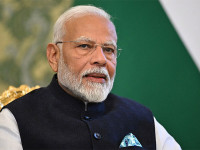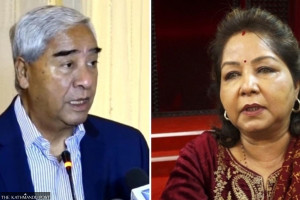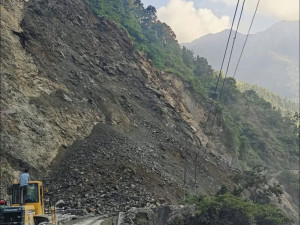National
Calls for critical review of inclusion commissions
Assessment must be consultative, transparent, based on their impact on marginalised communities, say experts.
Binod Ghimire
The Constitution of Nepal provisioned seven inclusion commissions to advocate for the rights of marginalised and deprived communities. The commissions—Madhesi, Dalit, Tharu, Muslim, Women, Indigenous Nationalities and Inclusion—were constituted with the responsibility to improve the socio-economic condition of underprivileged communities.
Hailed as a progressive step, the constitution also envisioned reviewing them in 10 years. Article 265 of the constitution tasked the federal parliament with this responsibility. As the constitution completes a decade of promulgation in September, the review work needs to commence in under a year.
However, there is no constitutional or legal clarity about the objective of the review and how it would be done. And parliament hasn’t held discussions to this effect.
As the major parties are talking about revising the constitution, there is a high possibility that the review of the commissions would be carried out simultaneously. “This would overshadow the proper review of the commissions, which were formed with some specialised mandates,” reads a suggestion paper on the modality of review prepared by Niti Foundation, an organisation involved in policy research, unveiled amid a function in Kathmandu, on Tuesday.
Those involved in drafting the suggestion paper say the review must be undertaken considering that they were constituted as a result of agreements with different marginalised and underprivileged communities with specific goals.
“The review must be consultative and transparent,” said senior advocate Raju Prasad Chapagain, who drafted the suggestion paper after consultation with the concerned stakeholders. “These commissions were formed to accomplish specialised objectives, so their review should be done keeping in mind the consequences of the decision.”
The paper has suggested endorsing a resolution motion for the review through the federal parliament and constituting a joint committee with members from the House of Representatives and the National Assembly to accomplish the task.
Parliamentarians agree with the suggestions. They said under the joint committee, there should be separate sub-committees to evaluate each commission.
“Before reaching any conclusions, these sub-committees should conduct thorough studies with the help of human rights experts and socialists,” said Jeevan Pariyar, a lawmaker and Nepali Congress deputy general secretary. “The motives for constituting the commissions, and whether they have been achieved must be evaluated properly.”
Pariyar said that although death penalty is unconstitutional in Nepal, scores of Dalits continue to lose their lives for intercaste marriages. Similarly, exile is unconstitutional, but hundreds of Dalits have been compelled to leave the country for marrying outside their castes, he noted.
“The inclusion commissions were constituted to elevate marginalised communities to a level playing field with other communities,” Pariyar said. “I believe these commissions are still necessary for another 10 years.”
Except for the Madheshi Commission, representatives from all other commissions said these constitutional bodies need extensions, as the objectives for their formation have not been met.
Although the constitution was enacted in 2015, it took another five years for these commissions to get full shape as successive governments—led first by the CPN-UML, then the CPN (Maoist Centre) and later the Nepali Congress—paid little attention to recommending office bearers.
And even after getting full shape, the commissions still lack resources.
Bishnu Maya Ojha, acting chair of the Inclusive Commission, said neither do they have enough resources nor are their recommendations implemented.
“Despite our repeated requests, the parliament is not bothered about discussing our reports,” she said. “But everyone is quick to point fingers at the commissions, saying they have done nothing. Despite resource constraints, we have done multiple studies and made several recommendations.”
Thakur Prasad Gaire, chair of the Committee for Monitoring and Evaluation of the Implementation of the Directive Principles, Policies and Obligations of the lower house, said the reviews must be done with an open mind.
“Let us properly evaluate whether they have fulfilled their mandates or if we need them or they can be dissolved,” he said.




 17.62°C Kathmandu
17.62°C Kathmandu












